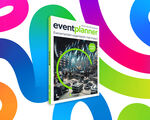Have you ever asked yourself why do you want to build a website for your event? While it sounds like a stupid question, take a moment to answer.
Maybe, you may want to create a frontage for your event, where you could store all the logistic data your attendees must know. Or maybe, it’s an operational system. Meaning you want to use the platform so that your guests could register, communicate with the event team, or pay their attendance fees.
Let’s not exclude the idea that you may want a webpage to promote your event... This is when things become trickier.
Most professionals think that simply creating an event page is enough to cover all the goals. However, using the site to market your event requires a different level of work than just having an informational page for the interested parties.
It’s one thing to build a webpage and send the link to your attendees, with the simple goal of informing and helping them to navigate the logistic aspects of the event. It’s another thing entirely to use this same channel as a platform to attract new guests.
To use your event webpage as a marketing tool, you must apply different techniques to increase your traffic. New webpages appear every day faster than mushrooms after rain.
If you don’t take the right precautions, nobody will find your site and you’ll fail to reach more leads. To keep this from happening, here’s a series of steps you must consider when building a webpage for your next event:
Step 1: Create the webpage long before the event
The number one mistake event professionals make is launching their event site about four or five months prior to the event. If your intention is to use the webpage just as an informative and registration platform, then it’s fine to create one shortly before the event.
But if you want to use your event webpage as a marketing tool, you need to spend one year (more or less) posting about and promoting your event page.
Short-term sites also don’t work from a SEO perspective. You need more time to rank the site on Google and appear in specific keyword searches. Subsequently, you need months to ensure a high volume of traffic.
Step 2: Provide immediate wins to your target group
You know as well as we do just how much information is floating out there on the internet. Millions of blog posts are published every day. Considering this, you must ask yourself what will not only draw people’s attention to your event webpage, but also make them want to come back.
The answer revolves around three actions. The first thing you must do is identify your target group. Who are your potential attendees? What is their profile? What are their key emotional drivers? Second, find out what their most burning pains are (obviously, related to the event content). Finally, produce content that will provide them immediate solutions, valuable insights, and quick wins. This will show your interest in helping your audience, which in turn increases the attractiveness of both your webpage and event.
Step 3: Encourage an active employee advocacy
Most of your employees probably have accounts on multiple social media platforms. Ask them to help you promote your event page by sharing published posts and being active in different groups of interests (specifically the ones where your target group is hanging out). This is a great way to increase your site’s visibility and reach a bigger audience, not to mention connect with your potential attendees.
Step 4: Know the latest SEO rules
Things don’t revolve around keywords anymore. Google has gotten smarter, so you should, too. A year or two ago, Google launched RankBrain, a machine-learning system that will sort search results.
As famous SEO expert Brian Dean notes, RankBrain focuses on how long someone spent on your page (Dwell Time) and the percentage of people that click on your results (Click Through Rate).
According to Dean, “If you spend a long time on a page, you probably like the content on that page. And if enough people feel the same way, Google will uprank that content to make it easier to find.” In other words, instead of cramming your posts with lots of keywords, you (or your writers) will actually have to focus on generating high-quality content that people will love.
Step 5: Promote your event website wisely
If you just have an event webpage and wait for people to find you, you might be as well without one. That’s why you may want to guest posts on other pages, too. After launching your event webpage (and your blog), find a series of sites (related to your event’s content) with high traffic and offer to write for them. Make sure to deliver top-notch material, which will increase your chances of being accepted for publishing and attracting the attention of new potential visitors.
Call to action
If you actually intend to rely on inbound marketing strategies for your event, work hard on positioning your site, and then watch it work for you. Make sure you launch your webpage long before the event. Set up a blog and provide extremely valuable posts and immediate wins to your target group.
Promote your site by encouraging your employees to participate actively and guest posting on other sites. Finally, don’t focus on keywords only. Since Google has changed the game rules, work on producing and publishing articles people will actually want to read. Good luck!










Very nice blog. thanks for sharing your knowledge.